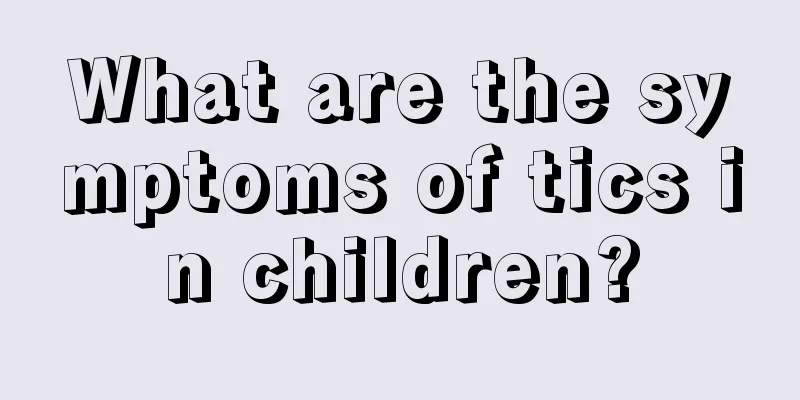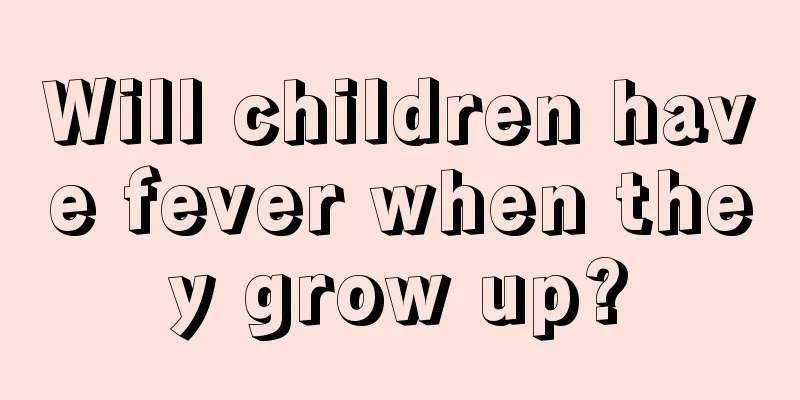Baby sweating while feeding

|
Various problems will arise in every stage of a baby's growth. Some problems are normal, while some problems only occur in a few babies. However, distinguishing between these two situations is difficult for most new mothers. For example, when the baby sweats while breastfeeding, many mothers suspect that the baby is too weak, while some mothers simply raise the room temperature. So what are the common reasons why babies sweat while feeding? Is it because the air temperature is too high? Is it a disease for babies to sweat while breastfeeding? Many new mothers will anxiously ask these questions when they see their babies sweating after feeding. Some children often sweat during sleep, and their clothes and pillowcases are soaked with sweat. This phenomenon is called night sweats in traditional Chinese medicine. Many parents are worried about this, and although they seek medical treatment everywhere, it is still not very effective. In fact, children's night sweats are not necessarily pathological. Most of them are physiological night sweats. Because children's skin has more moisture, rich capillaries, vigorous metabolism, and incomplete autonomic nervous regulation function, they are prone to sweating during activities. If children move too much before going to bed, the body's heat production may increase, or soon after eating, gastrointestinal motility may increase, gastric juice secretion may increase, and sweat gland secretion may also increase accordingly. These can cause children to sweat more after sleeping, especially within 2 hours after sweating. Pathological night sweats are more common in rickets, mainly in children under 3 years old, and are mainly manifested in sweating in the first half of the night, which is caused by low blood calcium. The night sweats of children with tuberculosis are characterized by sweating all night. Children also have symptoms such as low fever and weight loss, no or no weight gain, loss of appetite, and mood changes. From the above introduction, we can understand that babies sweating while feeding is generally a phenomenon of night sweats, which is not always pathological. Mothers don't need to worry too much. However, if the child's sweating is concentrated in the first half of the night, mothers should pay attention to whether it is rickets. You don't need to be overly nervous about any abnormalities in your baby, but you can't ignore them completely either. |
<<: Three month old baby with diarrhea
>>: Baby rolling his eyes when sleeping
Recommend
Treatment of infantile tics
According to surveys, the number of patients with...
What complementary foods are there for babies aged five or six months?
Some people say that it is cruel for a mother to ...
What is the reason why my baby coughs so much?
Usually babies will cough when they have a cold, ...
Children with fever and swollen lymph nodes
Fever is a common disease phenomenon in the human...
What are the methods of massaging the newborn's belly?
Some newborns are prone to indigestion or food ac...
What causes infantile dermatitis?
The skin of a newborn is generally more fragile t...
Reasons why babies cry and don't sleep during the day
It is difficult to take care of these babies when...
What to do if your child's white blood cell count is high
Children are their mothers’ angels. Their mothers...
Is it okay for children to eat pork loin?
Pork kidneys are actually pig kidneys. From a nut...
Why does a newborn's face turn red?
Newborns often have red faces. Many young mothers...
There is a depression on the back of the baby's head. What's going on?
Babies are the flowers of the motherland and the ...
Tips for three-month-old babies to sleep
Three-month-old babies should be taken seriously ...
What to do if your baby can't speak clearly
In daily life, every couple in every family wants...
What are the causes of fever in children?
Of course, we need to pay attention to the causes...
How to deal with toddler temper tantrums
Children nowadays are the big treasures of the fa...









